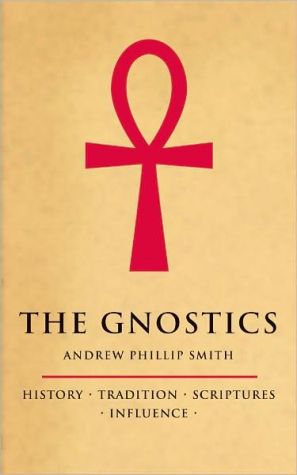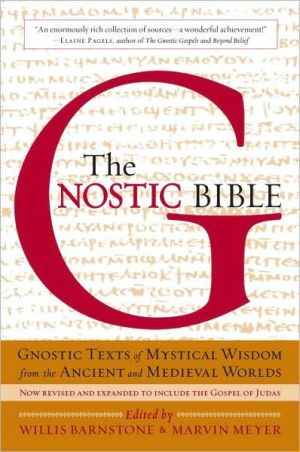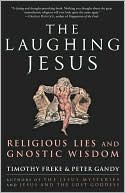The Gnostics: History, Tradition, Scriptures, Influence
According to the ancient Gnostics—the early Christians who wrote such controversial texts as the recently discovered Gospel of Judas—we are all capable of gnosis, or direct knowledge of the true reality that lies behind the material world. Andrew Phillip Smith, author of respected works on the lost sayings of Jesus, the Gospel of Philip, and other Gnostic subjects, now offers a highly accessible layman’s introduction to this long-suppressed philosophy that offers an intriguing alternative to...
Search in google:
According to the ancient Gnostics—the early Christians who wrote such controversial texts as the recently discovered Gospel of Judas—we are all capable of gnosis, or direct knowledge of the true reality that lies behind the material world. Andrew Phillip Smith, author of respected works on the lost sayings of Jesus, the Gospel of Philip, and other Gnostic subjects, now offers a highly accessible layman’s introduction to this long-suppressed philosophy that offers an intriguing alternative to accepted Christian beliefs. With references to The Da Vinci Code, The Matrix, and other fictions inspired by the Gnostic worldview, this is an eye-opening, and possibly life-changing book meant to revive forgotten traditions, and perhaps even allow readers to experience gnosis themselves. John Jaeger - Library Journal Gnosticism is a subject of broad interest not only because of its impact on Christianity in the early centuries but also because of the recurrence of its themes in later centuries and even to the present time. In particular, Gnosticism's emphasis on mind/body dualism and its focus on spiritual knowledge have been highly influential. Smith has written well-regarded books on Gnosticism and early Christianity (e.g., Gnostic Writings on the Soul), and his new book fits within the same framework. What sets him apart from other authors who write on this subject is his appreciation for Gnosticism: while other writers tend to view the movement as problematic in itself and in its impact on Christianity, Smith sees value in its unorthodox ideas. His appreciation allows him to write about Gnosticism without any negative bias and helps make the work that much more interesting to read. Comprising 11 chapters, it addresses such topics as Gnostic mythology, psychology, scriptural interpretation, behavior, and origin, followed by later chapters dealing with historical movements associated with Gnosticism, such as the Manichaeans, Cathars, and Mandaeans. Recommended for all libraries.
\ Library JournalGnosticism is a subject of broad interest not only because of its impact on Christianity in the early centuries but also because of the recurrence of its themes in later centuries and even to the present time. In particular, Gnosticism's emphasis on mind/body dualism and its focus on spiritual knowledge have been highly influential. Smith has written well-regarded books on Gnosticism and early Christianity (e.g., Gnostic Writings on the Soul), and his new book fits within the same framework. What sets him apart from other authors who write on this subject is his appreciation for Gnosticism: while other writers tend to view the movement as problematic in itself and in its impact on Christianity, Smith sees value in its unorthodox ideas. His appreciation allows him to write about Gnosticism without any negative bias and helps make the work that much more interesting to read. Comprising 11 chapters, it addresses such topics as Gnostic mythology, psychology, scriptural interpretation, behavior, and origin, followed by later chapters dealing with historical movements associated with Gnosticism, such as the Manichaeans, Cathars, and Mandaeans. Recommended for all libraries.\ —John Jaeger\ \ \







